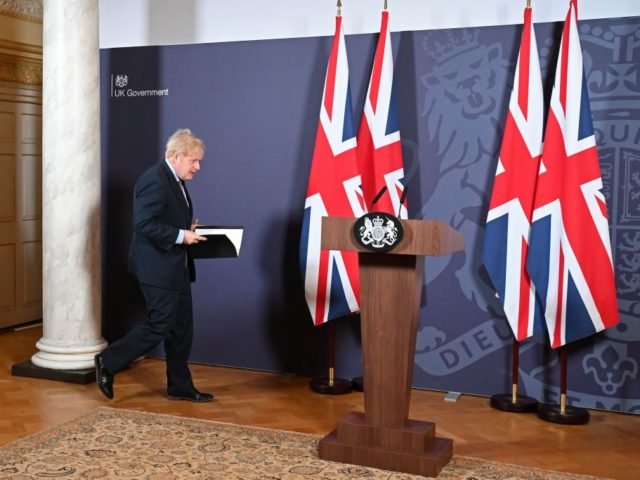The new Brexit deal has fallen short on finanical services — a major part of the UK economy — the Prime Minister has admitted, but nevertheless the UK has an opportunity now to go its own way and make the most of freedom post-Brexit, Boris Johnson claimed in an interview.
The UK Prime Minister expressed his thoughts on the new Brexit deal — apparently part of a post-agreement media blitz from Boris Johnson — in an interview with the Sunday Telegraph a, whose weekday stablemate Johnson worked for over amny years as a European Union correspondent and a columnist.
While Johnson generally talked up the deal in the interview, one line which was widely reported by other outlets Sunday was his comments on the deal’s section on services. The UK transitioned from a predominantly manafacturing-based economy to a services-based one in the late 20th century, and services account for roughly 80% of British exports.
Finanical services are of particular importance to the UK economy, but Mr Johnson said that “perhaps [the deal] does not go as far as we would like” on that area. The deal has also been criticised for failing on fishing, with the industry lagging behind in terms of seeing the benefits of Brexit for another five years.
Much of Johnson’s reported comments in the Sunday Telegraph interview revolve around one of the flagship achievements in the deal, that of whether the United Kingdom would be able to set its own rules and regulations after Brexit — in other words, to diverge from the EU rulebook after the divorce to suit itself, rather than Brussels.
The Prime Minister said he had been accused of “cakeism” for years over the matter, implying that being able to trade with the European Union openly while also being an independent nation was a matter of having ones cake and eating it too. He insisted he had achieved the impossible in this rehard, telling the paper that the worst demands of the European Union had been “basically neutered” by the “brilliance” of top UK trade negotiators.
The fact the UK would be free to diverge from the EU in 2021 and beyond meant what the paper described as “major changes” would be coming, but some of those the government are considering have not been discussed publicly until now because they could have prejudiced talks. In the article, the Prime Minister is quoted as specifically citing policy areas like ” free ports, yes, free trade deals, fantastic, changing animal welfare regulations, great, new stuff on data or chemicals”.
Boris Johnson also appeared to link his trade deal to a 1988 speech by Margaret Thatcher, where she expressed her oposition to the changing nature of the then-European Economic Community, which was pushing towards centralisation and super-statehood in its own right, a process that would lead to the establishment of the single ‘Euro’ currency and the European Union itself. The speech has been described as the one that put Britain on the path to Brexit over 30 years later, and Johnson said this week: “The whole country has been divided about this issue, because we are European, but on the other hand we don’t necessarily want to feel that we’re committed to the ideology of the European Union.
“That’s been the problem and I think it is absolutely true that Margaret Thatcher … she did begin this period of questioning. Her Bruges speech was very, very important.”
Margeret Thatcher’s record on Europe was an object of some discussion during the 2016 referendum, with remainers pointing to her early enthusiasm for the EEC, campaigning for the ‘Conservative Yes to Europe’ side in the 1975 referendum that rubber-stamped Britain’s membership of the growing bloc. Brexiteers, on the other hand, pointed to her later change of heart on Europe — as illustrated in the Bruges speech and elsewhere — as it became clear the bloc was evolving to become something wholly new and incompatible with British interests.
This later view again came into focus on Sunday, not just because of Prime Minister Johnson’s remarks, but with the release of new archives from the 1990s revealing fresh comments from Thatcher when she oppsoed the Euro single currency, criticised Europe’s “non-elected bureaucracy”, even calling it a “politbureau” in the mould of the then-disintergrating Soviet Union.

COMMENTS
Please let us know if you're having issues with commenting.